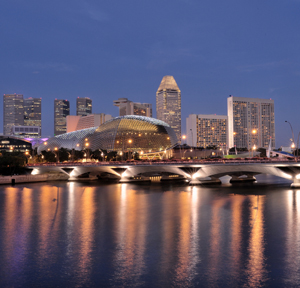Compliance
Singapore Censures 20 Banks After Benchmark-Rigging Probe

The Monetary Authority of Singapore has criticised 20 banks after finding that 133 traders tried to rig key borrowing and foreign exchange rates, a development that comes after authorities in Europe and the US discovered large-scale manipulation of interbank interest rates in recent months.
The MAS said it proposed a new regulatory framework governing financial benchmarks, following a year-long review of how banks submit data for these benchmarks. The regulator said it has found widespread problems and abuses.
The move by the Singapore regulator comes in the wake of punishments meted out by regulators in the West against banks such as Barclays over the rigging of the London Interbank Offered Rate, and its equivalents. The move rocked confidence in the London financial market, leading to high-profile resignations and moves by banks to enhance compliance systems.
The tone of the MAS’s comments suggests the jurisdiction is mindful of how rate-rigging can be damaging to a financial centre’s reputation.
“Based on its findings, MAS has taken a range of supervisory actions against banks for deficiencies in the governance, risk management, internal controls, and surveillance systems, relating to these processes,” the MAS said in a statement on Friday.
“Twenty banks were found to have deficiencies in the governance, risk management, internal controls, and surveillance systems for their involvement in benchmark submissions. MAS has censured these banks and directed them to adopt measures to address their deficiencies. The banks are required to report their progress to MAS on a quarterly basis, and conduct independent reviews to ensure the robustness of their remedial measures,” it said.
“A total of 133 traders were found to have engaged in several attempts to inappropriately influence the benchmarks. While there is no conclusive finding that SIBOR, SOR and FX Benchmarks were successfully manipulated, the traders’ conduct reflected a lack of professional ethics. Although the number of traders involved represents a small proportion of the trading community in Singapore, MAS takes a serious view of the need to uphold high standards of integrity in the industry and expects banks to foster a culture of ethical conduct among all their employees,” it said.
The regulator said banks concerned will be required to put aside additional statutory reserves with the MAS at zero interest for a year; the duration of this period may vary depending if the regulator is satisfied banks have reformed their systems, it said.
The MAS said the 20 banks have taken disciplinary actions against the traders involved. About three-quarters of these traders have resigned from or have been asked to leave their banks. The rest of the traders who remain employed by their banks have been, or will be, subject to disciplinary actions.
Punishments include reassignment to other jobs, demotions, and forfeiture of bonuses,” the MAS said. The regulator has referred some cases to the Commercial Affairs Department and the Attorney-General’s Chambers. Based on the available information and evidence, no criminal offence under current Singapore law appears to have been committed.
According to Reuters, the MAS ordered UBS, RBS and ING to set aside the most in additional reserves, with each having to post between S$1 billion ($800 million) and S$1.2 billion extra with the central bank. The money will be returned if the banks take the required remedial action. UBS said these were the actions of a few in the past. A UBS spokesman reportedly said it had significantly strengthened its internal procedures and controls. ING said it had taken disciplinary action against the small number of individuals involved. RBS said it would comply with any required remedial measures, Reuters said. Other banks censured included BNP Paribas, Bank of America, Oversea-Chinese Banking Corporation, Barclays, Credit Suisse, DBS, Deutsche Bank and Standard Chartered, the news agency said.
Singapore's two main lending benchmarks, the Singapore Interbank Offered Rate (Sibor) and the Swap Offer Rate (SOR) are used to price mortgages and other types of loans.
The Singapore Foreign Exchange Market Committee and the Association of Banks in Singapore announced that the US-dollar linked version of Sibor would be scrapped, with banks relying on U.S.-dollar Libor instead.